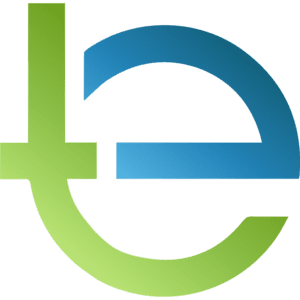Name
Capella University
NURS-FPX6203: Theory Development in Nursing
Professor Name
October 2024
Researching the Skills Required for a Future Career
Part 1: Choosing a Career
Identify a Career
I have chosen nursing informatics as my career because it is a competitive field about the needs of society’s current health care system. Info-tech displaces traditional healthcare goods and services, and the newest technologies invest in multiple patient care delivery processes (Reid et al., 2021). Through research, I am choosing nursing informatics because it will grow rapidly in the future.
Navigate and Select Job Posting
https://www.indeed.com/viewjob?jk=6dbaf30a5a3d139d&tk=1go4g7r86j3ua801&from=serp&vjs=3
Brief Description of the Job
The position is Informatics Nurse Specialist and they will be responsible for being in touch with the clinical ancillary and other nursing functions of Mayo Clinic. This informatics nurse specialist will evaluate the necessity for clinical application in ambulatory and clinical health care (Kleib et al., 2021). The Informatics nurse specialist will also determine useful technologies and healthcare systems selecting and evaluating the departmental need completely. The nurse informatics will consult with the interdisciplinary team, and educate the healthcare staff to improve patient care outcomes (Liu et al., 2021). The technological trend and change in EHRs will entail nurse informatics.
Technology Skills Required for the Job
For the informatics nurse specialist, the nurse should be fully conversant with professional computing competencies and HIT profiling including but not limited to basic software applications, EHRs, and digital patient documentation (Dumitru et al., 2023). Nursing informatics specialists should enhance their computing competence to use technology, information, and knowledge to advance technology. Nurses have to work closely with software engineers to assist them in setting up data architecture and new technologies.
Part 2: Identify Skills
About the nurse informatics career, it is demonstrated that there is a need to acquire several skills that can improve personal and professional capacity. Indeed, project management is the key competency area in which aspects will be assessed including data analysis, conducting clinical research, or informatics tools to successfully implement a technology. Another requirement is that the nurse informatics specialist can solve the issues in the healthcare system by defining opportunities and benefits. There is a huge imperative to work with interdisciplinary teams and with nurse informatics after the implementation of new technologies in health care and therefore nurse informaticists must be excellent in communication (Kedia et al., 2023).
Since Mental Health Nurse Informaticists (MHNIs) are involved in promoting and supporting healthcare IT among the healthcare staff, they must have good collaboration strategies to come up with data about the existence and need for IT from the healthcare staff. The data can be also applied to the improvement of healthcare and modifications of its policies (Genova et al., 2023). The most important type of competency is a high technical competence that includes awareness of conventional and innovative medicine, awareness of the most recent informatics, and efficient electronic record systems. Data analytics is also a crucial aspect that a nurse informatics specialist needs to possess before handling this job.
Decision-making based on the data analysis for which the nurse informatics specialists gather, store, and analyze excessive amounts of raw data requires expertise in various statistical software. Specialists in the field of nursing informatics should then proceed and utilize analytical data and come up with quality improvements (Kedia et al., 2023). This specialty is useful for future professional development because the healthcare system is in the process of becoming computerized. There is highly the role of specializing in nursing informatics offers great and highly-paid employment to nurse informaticists.
Skills Already Acquired
I had some technical knowledge of nursing informatics. I have a total working experience of nine years in which I got to know how to adopt different kinds of healthcare technologies like Electronic Medical Record systems. I possess a full mastery of data analytics and this is because of the critical thinker I am. I can pause the issue in the current stream of affairs in healthcare technological advancement to bring a change. I have particularly developed very good collaborative and interdisciplinary skills in communication.
Brief Description of Job and Technical Skills
This job title is clinical nurse informaticist, which means that the nurse informaticist will be responsible for coordination with accountabilities for high-quality patient care through the effective application of information systems on the clinical level. The nurse informaticist will redesign the healthcare systems’ workflow and evaluate various technologies already in use in these health systems. The nurse informaticist will also develop cross-functional teams to address the identified problems in the system of clinical documentation. Nurse informaticists will identify changes to current policies to foster the development of the Sutter Health clinical information system. The nursing informatics technology specialist must have a high working knowledge of nursing informatics, electronic healthcare systems, technologies, and data analytics in clinical practice (Krasna, 2024). Also, such abilities include project planning, process mapping, training of healthcare staff, and designing the system of the latter’s work.
The degree to Which Companies are Appealing for Job
The third attractive job opportunity position by the Mayo Clinic is a nonprofit academic medical center based in Rochester, Minnesota (Dawson et al., 2021). Mayo Clinic is a reputable healthcare institution that has dedicated its efforts towards getting to the top of the list of the best hospitals in the country regarding specialized Mayo Clinic is renowned for research and quality patient service delivery across the country. Mayo Clinic is also known as a place to work because the personnel is provided an opportunity to work with leaders in the field of healthcare services, which meets their personal and professional needs.
The second most popular workplace is in Ohio in an organization known as Cleveland Clinic. The featured healthcare organization is highly regarded for its innovative orientation to the clients and exceptional investigations. Cleveland Clinic has affiliate branches at the international level thus placing high value on the patient-centric model emphasizing the occurrences of quality services as well as improvement in the standard of services given through constant service delivery (Liu et al., 2021). The clinic is big in its employment policy with over 70 thousand employees this is a place of work that fosters the employability of its workers as it provides several openings for professional growth in one of the best healthcare facilities in the world.
COM FPX 1150 Assessment 1 References
Dumitru, D., & Halpern, D. F. (2023). Critical thinking: creating job-proof skills for the future of work. Journal of Intelligence, 11(10), 194. https://doi.org/10.3390/jintelligence11100194
Dawson, N., Williams, M. A., & Rizoiu, M. A. (2021). Skill-driven recommendations for job transition pathways. PloS One, 16(8), e0254722. https://doi.org/10.1371/journal.pone.0254722
Genova, H. M., Kallen, M. A., Sherwood, K. L., Dawalt, L., Bishop, L., Telfer, D., Brown, C., Sanchez, B., & Smith, M. J. (2023). Development and psychometric properties of self-reported job interview skills and job interview anxiety for autistic transition-age youth. Journal of Vocational Rehabilitation, 58(2), 199–217. https://doi.org/10.3233/jvr-230009
Krasna, H. (2024). Employer demand and desired skills for public health graduates: evidence from job postings. American Journal of Public Health, e1–e6. https://doi.org/10.2105/AJPH.2024.307834
Klein, M., Chauvette, A., Furlong, K., Nagle, L., Slater, L., & McCloskey, R. (2021). Approaches for defining and assessing nursing informatics competencies: A scoping review. JBI Evidence Synthesis, 19(4), 794–841. https://doi.org/10.11124/JBIES-20-00100
Kedia, S. K., Entwistle, C., Lee, G., Magaña, L., Burke, E. M., & Joshi, A. (2023). Expectations of employers in the United States for entry-level public health job skills with a bachelor’s degree: an analysis of the positions advertised in an online job portal. Frontiers in Public Health, 11, 1218509. https://doi.org/10.3389/fpubh.2023.1218509
Liu, J., Liu, S., Shi, Q., & Wang, M. (2021). Bibliometric analysis of nursing informatics research. Studies in Health Technology and Informatics, 284, 47–49. https://doi.org/10.3233/SHTI210661
Reid, L., Maeder, A., Button, D., Breaden, K., & Brommeyer, M. (2021). Defining nursing informatics: a narrative review. Studies in Health Technology and Informatics, 284, 108–112. https://doi.org/10.3233/SHTI210680
Table of Contents
Toggle






